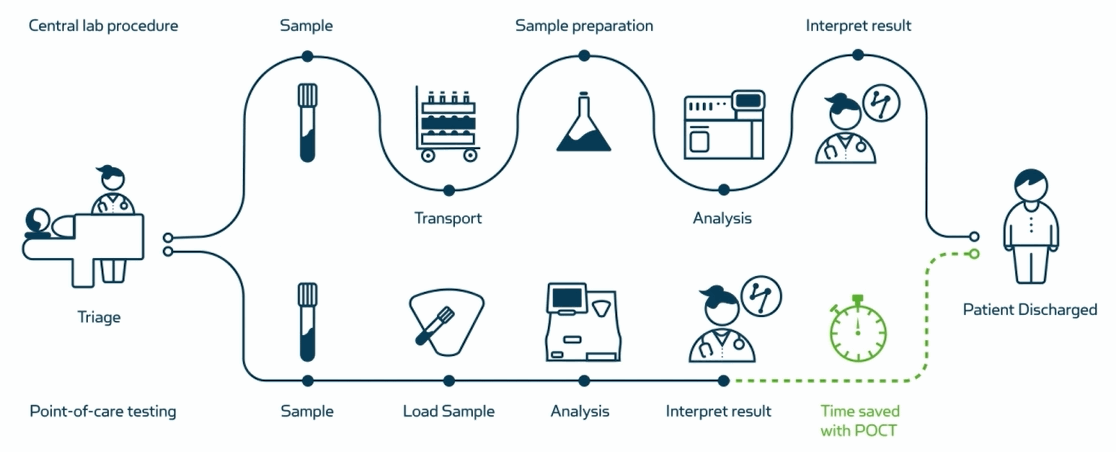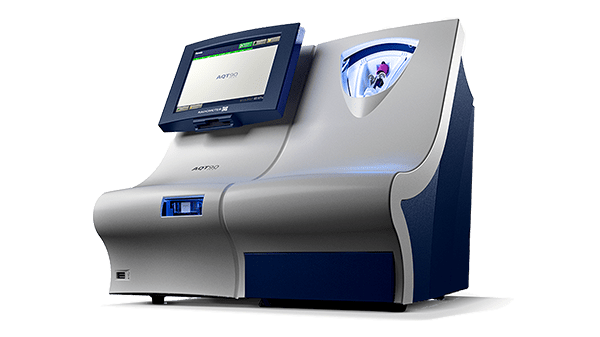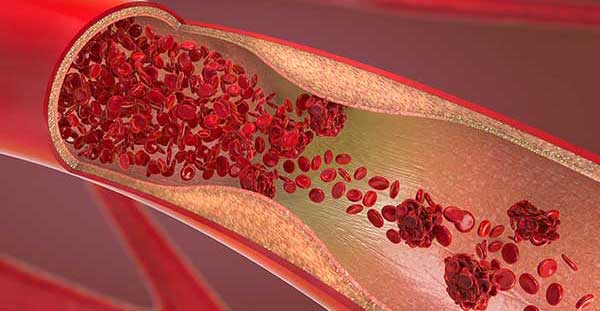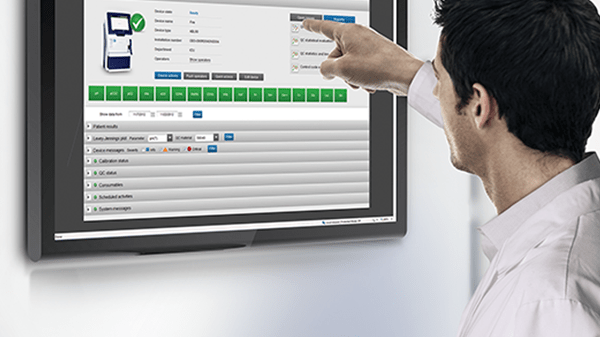Select your destination
Continue to Radiometer Medical
Immunoassay testing
Make critical decisions fast with point-of-care biomarker testing
-
 Accelerate patient flow
Accelerate patient flow
-
 Make critical decisions fast
Make critical decisions fast
-
 Ensure reliable results
Ensure reliable results
In acute care situations, time is critical. With immunoassay testing at the point of care (POC), you no longer have to wait for critical test results from the lab. The Radiometer AQT90 FLEX analyzer delivers results in 11-21 minutes.
You can run immunoassay tests such as cardiac, coagulation and infection biomarkers at POC. This not only allows you to stay close to your critically ill patient, but it also helps you:
- Diagnose or rule out critical conditions
- Initiate treatment faster, improving the odds for the patient’s recovery [1,2].


Time saved with point-of-care testing

Fast, reliable results at point of care
With the AQT90 FLEX analyzer, you can also manage more patients at the same time. You can initiate up to 30 tests per hour and multiple tests simultaneously.
Fast, reliable results at point of care .
With the AQT90 FLEX analyzer, you can also manage more patients at the same time. You can initiate up to 30 tests per hour and multiple tests simultaneously.
Biomarkers for the AQT90 FLEX analyzer
The extensive range of biomarkers for the AQT90 FLEX analyzer aids in the diagnosis of heart failure, myocardial infarction, venous thromboembolism, infection and pregnancy:
NT-proBNP, Troponin I, Troponin T, Myoglobin, CKMB, D-dimer, PCT, CRP, ßhCG.
Related knowledge sources
References
2. Nørgaard B, Mogensen CB. Blood sample tube transportation system versus point of care technology in an ED; effect on time from collection to reporting? A randomized trial. SJTREM 2012; 20: 71.
Cookies are used on this website
Use of cookiesPlease enter a valid email
We will be sending an e-mail invitation to you shortly to sign in using Microsoft Azure AD.
It seems that your e-mail is not registered with us
Please click "Get started" in the e-mail to complete the registration process
Radiometer is using Microsoft AZURE Active Directory to authenticate users
Radiometer uses Azure AD to provide our customers and partners secure access to documents, resources, and other services on our customer portal.
If your organization is already using Azure AD you can use the same credentials to access Radiometer's customer portal.
Key benefits
- Allow the use of existing Active Directory credentials
- Single-sign on experience
- Use same credentials to access future services
Request access
You will receive an invitation to access our services via e-mail when your request has been approved.
When you accept the invitation, and your organization is already using AZURE AD, you can use the same credentials to access Radiometer's customer portal. Otherwise, a one-time password will be sent via e-mail to sign in.







